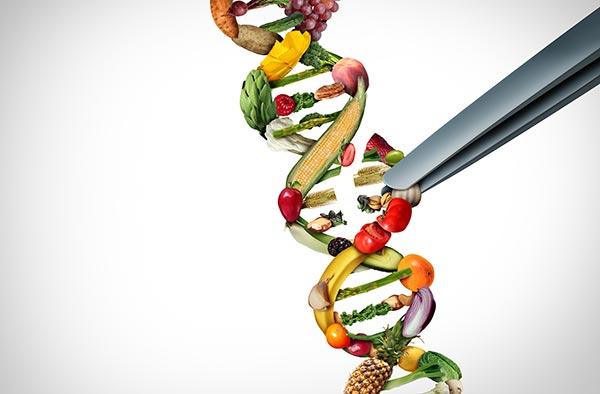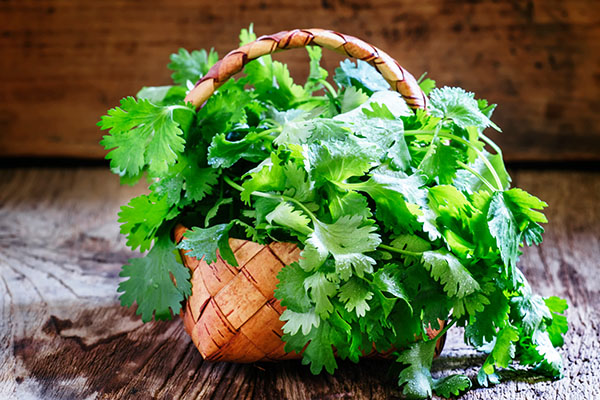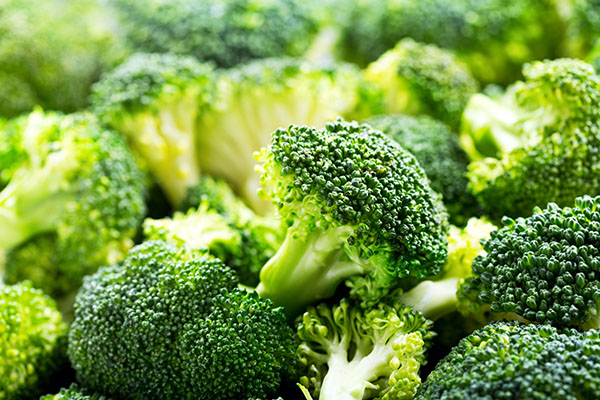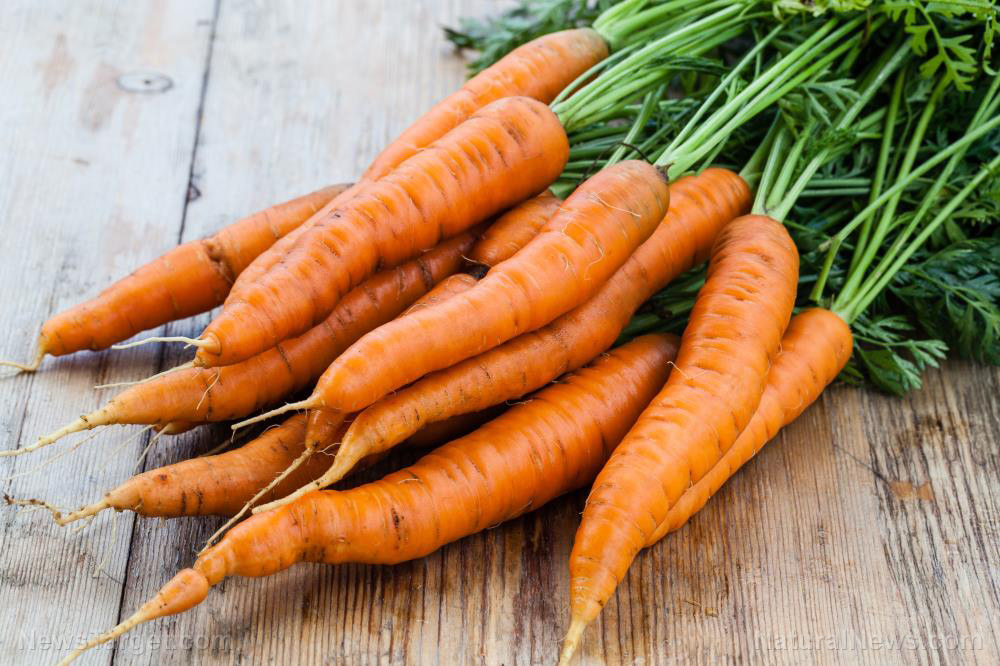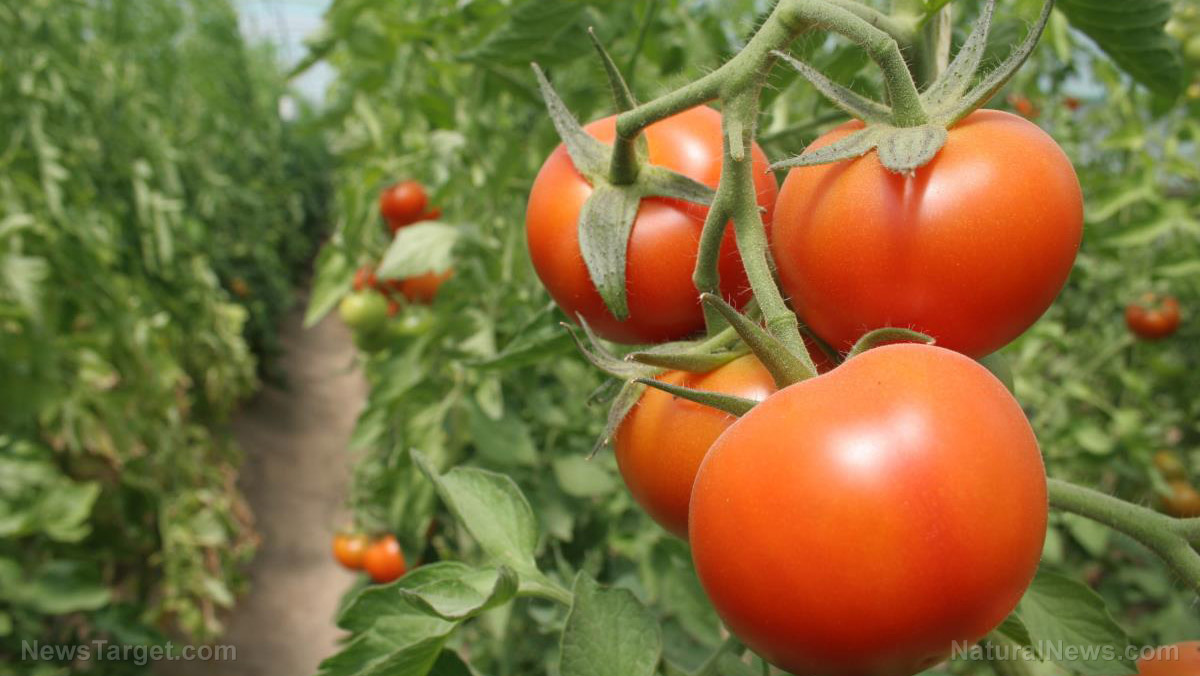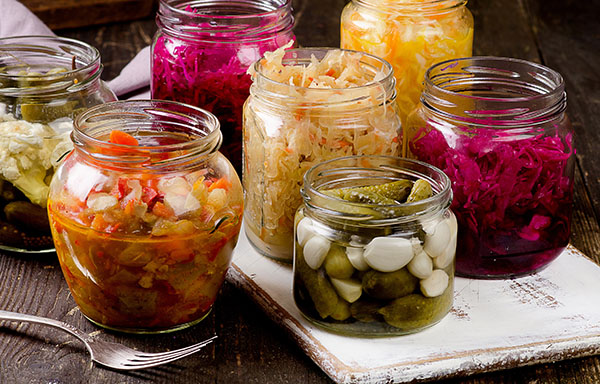STUDY: Eating foods high in flavonols (like quercetin) can help you stay strong as you age
09/26/2023 / By Evangelyn Rodriguez

Frailty is a state of health often experienced by older adults. It is generally characterized by health problems such as loss of muscle mass and strength and constant fatigue. Older people who are frail are vulnerable to sudden changes in their health, which can be triggered by small events such as a change in their environment or medications, or a minor infection.
Frail people are also the most likely to sustain injuries due to a fall, develop disabilities, be admitted to a hospital or require long-term care. They tend to have weak muscles and suffer from various conditions, such as arthritis, deafness, poor eyesight and poor memory. Because of the weakness they feel, frail older adults also tend to walk slowly, get exhausted quickly and struggle to do the simplest task, such as climb stairs or stand up on their own.
But while frailty threatens the health of the elderly, experts say it can be prevented with the help of specific interventions that can begin early in life. Aside from being physically active, which helps improve strength and reduce weakness, changing your diet to include more foods that are rich in flavonols can help you stay strong and healthy as you age.
Flavonols are the key to healthy aging
According to a new study published in the American Journal of Clinical Nutrition, consuming flavonol-rich foods, like apples and blackberries, could help lower your risk of growing frail once you enter your golden years.
After looking at how the consumption of dietary flavonoids, their subclasses (i.e., flavonols, flavan-3-ols, flavonones, flavones, anthocyanins and polymeric flavonoids) and the flavonol quercetin impacted the onset of frailty among a cohort of older adults, researchers found that every 10 milligrams (mg) higher intake of flavonols per day lowered the participants’ risk of growing frail by 20 percent.
Frailty, it should be noted, carries a greater risk of falls, fractures, disability, hospitalization and death, and affects approximately 10 to 15 percent of older adults. The researchers shared that older adults can prevent frailty by eating one medium-sized apple a day, which provides 10 mg of flavonols (or more) when consumed with its skin on.
Flavonols, which are potent antioxidants, are found in a wide variety of fruits and vegetables. Studies show that aside from neutralizing free radicals, flavonols also have antimicrobial, liver-protective, anti-inflammatory, vasodilating, antiallergic and antiviral properties that allow it to offer plenty of health benefits. A diet rich in flavonols has been shown to help lower the risk of many chronic conditions, such as cardiovascular disease, Type 2 diabetes, cancer and dementia.
Another important finding highlighted in the study was that, while the consumption of other flavonoid subclasses showed no association with frailty, increased consumption of the flavonol quercetin did. Every 10 mg higher daily intake of quercetin, which is the most abundant flavonoid in the human diet, was found to reduce adults’ risk of frailty by 35 percent. (Related: Quercetin can slow down the progression of rheumatoid arthritis.)
According to Kathleen Benson, a registered dietitian at Top Nutrition Coaching, quercetin’s antioxidant properties and its ability to work synergistically with other nutrients are what makes it very helpful for treating age-related disorders. Also dubbed the “anti-aging flavonoid,” studies promote quercetin as a promising treatment for aging-related diseases because it “actively participates in the improvement of mitochondrial dysfunctions.” The natural decline in mitochondrial function, which accompanies the aging process, has been linked to conditions commonly observed among the elderly, such as metabolic disorders, central nervous system-related diseases and cancer.
How flavonols lower the risk of age-related frailty
According to Dr. Shireen Kassam, co-founder of Plant Based Health Online, the positive relationship between flavonol consumption and frailty hinges on one word: inflammation.
“The most likely reason for the positive findings is that flavonols are able to reduce the level of inflammation and cellular stress in the body, which can then protect against the development of frailty,” explained Kassam.
Inflammation has been implicated in a variety of health conditions. While normal inflammation subsides as soon as the need for it is gone, abnormal inflammation that persists can result in physical changes that lead to frailty. Following this logic, reducing inflammation is the best way to lower your risk of becoming frail as you age, and the anti-inflammatory activities of flavonols can help you with that.
Kassam also noted that frailty negatively impacts a person’s overall health and well-being. “The presence of frailty is associated with an increased risk of adverse outcomes from a variety of conditions including infections, increased risk of falls, need for hospitalization, and the need for long-term care,” she explained. (Related: STUDY: Fruit from invasive weed found to prevent skin aging.)
Fortunately, you can stay strong and avoid growing frail as you age by taking advantage of the beneficial properties of flavonols. And there’s no better way to do that than to add flavonol-rich foods to your diet.
Boost your flavonol intake with these foods
To increase your intake of flavonols, add the following superfoods to your daily diet:
- apples
- arugula
- blueberries
- broccoli
- grapes
- leeks
- red onion
- tomatoes
Other superfoods that contain significant amounts of flavonols include moringa, strawberry, cauliflower, curly kale, leeks, yellow wax pepper, ancho pepper, black tea, iceberg lettuce and tomatoes. Because quercetin was highlighted by the study as the flavonol with the strongest effect on frailty risk, you should also incorporate quercetin-rich foods into your meals. Some great sources of quercetin include berries, dark-colored grapes, capers, dill, buckwheat and green tea.
To get 10 mg of flavonols or more in one go, Benson suggests snacking on a green salad that includes half a cup of kale and one tablespoon of diced red onion. You can also add a handful of blueberries into overnight oats, slice up an apple and pair it with your favorite nut butter. Snacking on some broccoli would also do the trick.
But don’t just focus on getting flavonols, Kassam warns. To slow down age-related decline, following a well-balanced diet and adopting healthy lifestyle changes work best.
“Diets centered around healthy plant foods, including fruit, vegetables, whole grains, beans, nuts, and seeds is considered the best way to maintain good health with aging and will also help to reduce frailty,” advises Kassam.
Frailty is a common clinical syndrome among older adults that can be prevented with regular exercise and a diet rich in flavonols. For more tips on how to stay healthy as you age, visit AntiAgingScienceNews.com.
Watch this video to learn about the flavonol fisetin and what it can do for your brain.
This video is from the InfoHealth News channel on Brighteon.com.
More related stories:
FDA finally admits that cocoa flavonols boost cardiovascular health.
Plants against cancer: Eighteen 100% natural phytochemicals that prevent and treat cancers.
Children should eat more veggies: A flavonoid found in them reduces the risk of eye cancer.
Fight off viral infections with the power of quercetin.
Research says flavonoids can flush out arsenic from the body.
Sources include:
ARS.USDA.gov [PDF]
Submit a correction >>
Tagged Under:
aging secrets, alternative medicine, anti-aging, antioxidants, flavonols, food is medicine, food science, fruits, health diet, health science, inflammation, natural health, natural medicine, organics, phytonutrients, prevention, quercetin, remedies, research, veggie
This article may contain statements that reflect the opinion of the author
RECENT NEWS & ARTICLES
COPYRIGHT © 2017 VEGGIE NEWS








